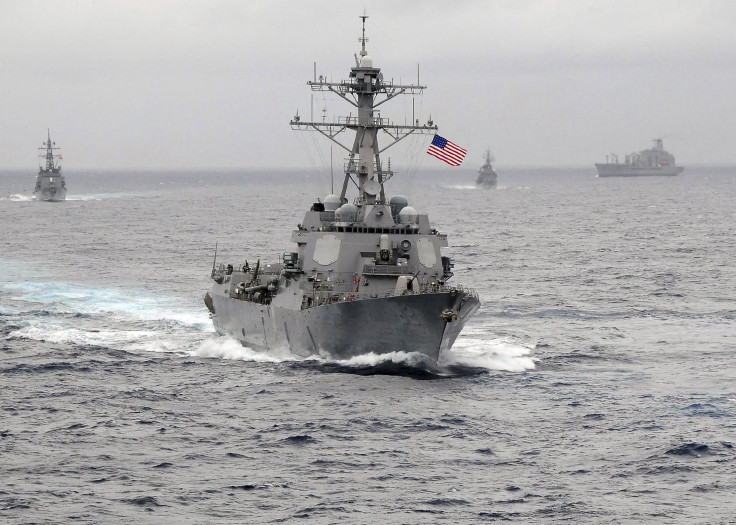European Union Backs US On South China Sea Patrol, Says It’s ‘Freedom Of Navigation’

The European Union supported the United States Friday over a recent U.S. navy patrolling incident in the South China Sea, which prompted the Chinese government to summon the U.S. Ambassador to China earlier this week. The EU’s stance is expected to affect Brussels’ upcoming discussions with Beijing at the Asia-Europe meeting in Luxembourg next week.
On Tuesday, the USS Lassen guided-missile destroyer sailed within 12 nautical miles of one of China’s man-made islands in the disputed Spratly archipelago. Beijing criticized the patrol as “extremely irresponsible,” and demanded that the U.S. immediately stop infringing on Chinese territory. The U.S., on the other hand, has been arguing for several weeks that it would deploy ships in the area as part of a “Freedom of Navigation Operation,” something that the EU also apparently believes in.
“The U.S. are exercising their freedom of navigation,” Reuters quoted a senior EU official as saying at a briefing, adding that the union is concerned about China’s building of islands in the contested waters in the South China Sea.
While the EU statement may be welcomed by other Asian nations like Vietnam, the Philippines, Taiwan and Malaysia contesting China’s territorial claims in the region, it could jeopardize EU’s fostered relations with Beijing. The EU, which has been trying to attract Chinese funds to revive the bloc’s struggling economy, has also decided to join the China-led Asian Infrastructure Investment Bank.
“Whilst not taking a position on claims, the EU is committed to a maritime order based upon the principles of international law, in particular as reflected in the United Nations Convention on the law of the Sea (UNCLOS),” an EU foreign affairs spokesman said in a statement, according to Reuters.
Although the U.S. has been trying to resolve disputes in the South China Sea by calling for all claimants to halt land reclamation in the region last year, China has apparently doubled down its efforts to strengthen its territorial claims by building airstrips and other military facilities.
However, China is currently said to be under mounting pressure over its maritime claims. The Philippines has also contended that China’s claims are invalid under the 1982 U.N. Convention on the Law of the Sea.
“As China grows in strength as a maritime power, Beijing might realize that the country's interests are best protected by upholding rather than undermining the convention,” Lynn Kuok, a fellow at the Brookings Institution, a Washington-based think tank, told the Associated Press.
© Copyright IBTimes 2024. All rights reserved.





















